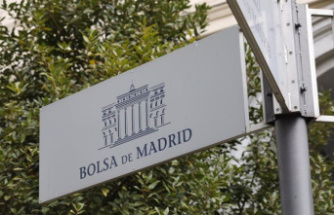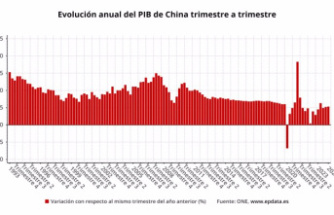The economic measures taken by the government to appease the crisis of the yellow vests do not have, it seems, was not enough to rebuild the trust of the French. The panorama drawn up by the annual Barometer Cofidis/CSA, which focuses on "The French and their purchasing power", is not optimistic.
" READ ALSO - The historical hike in the purchasing power is not reflected in the economy
According to the French, their purchasing power is declining: 31% of them believe that it is "low", compared to 28% last year. More importantly, the proportion of those who consider themselves to be "in trouble" is now 30%, two percentage points more than in the previous year.
And even though many indicators seem to prove the contrary. According to the projections of the Bank of France, the purchasing power per capita should thus experience an increase of 2.1% in 2019. In addition, the average amount of the bank overdraft is lower: it amounted this year to 340 euros, compared to 370 in 2018 and 394 in 2017.
" READ ALSO - According to Édouard Philippe, the average purchasing power will increase from 850 euros in 2019
The barometer Cofidis-CSA thus highlights a paradox far from new: as their purchasing power increases, the feeling of the French is the opposite. In a note, the Insee explains this phenomenon by an increase of the spending constraints" (cost of housing, insurance and financial services, telecommunications expenditure, and television...) as well as an increase in the range of products. All of which tend to invisibiliser the gains in purchasing power.
reforms to be valued, but deemed insufficientThe difference between perception and reality can also be explained with the erosion of the confidence granted to the government.
Thus, seven in ten French believe that several reforms made by the government to improve purchasing power. Among them, the increase in the ceiling for the premium to the conversion, the upgrading of the premium, or even the exceptional bonus of the end of the year. However, they are only 48 percent feel that the measures taken by the government, as a whole, will improve their purchasing power... The trust deficit appears to be dug during the first two years of mandate of Emmanuel Macron. A delicate situation, while the government undertakes, in this second part of the quinquennium, reforms of magnitude, such as that of pensions.
More generally, it is the confidence in the future of the surveyed is eroded. They are less likely to believe that their purchasing power is likely to improve from one year to the other. 53% believe that this will be the case, compared to 56% last year. A slump that is even stronger in young and active people: while 70% believed that their purchasing power was poised to improve in 2018, they are more than 58%. Result: the French are turning more and more to consumer credits (they are 37% to be subscribed to, 9 points more than last year), and reducing their expenditure to necessities such as food and energy. They save also more, according to the Bank of France.
" READ ALSO - Emmanuel Macron is relaunching its "war of movement" against poverty
As many of the questions of life and maintain the purchasing power of the foremost concerns of the French (42% of them). This was followed by health (37%) and the environment (35%).
Date Of Update: 18 September 2019, 00:00












